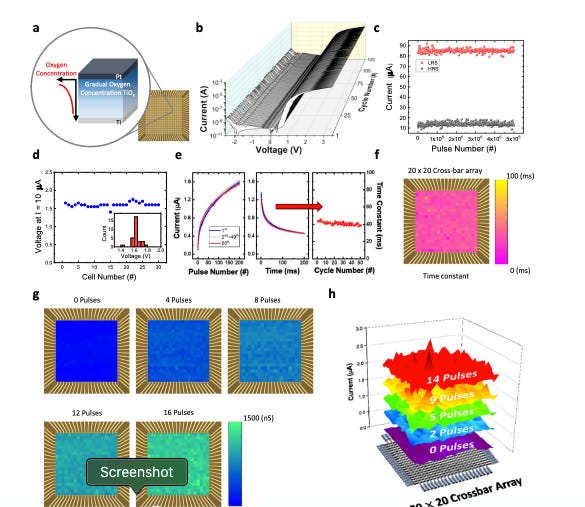Highly Reliable Dynamic Memirstors for Artificial Neurons and Neuromorphic Computing
Neuromorphic computing, a computing paradigm inspired by the human brain, enables energy-efficient and fast artificial neural networks. To…
Neuromorphic computing, a computing paradigm inspired by the human brain, enables energy-efficient and fast artificial neural networks. To process information, neuromorphic computing directly mimics the operation of biological neurons in a human brain. To effectively imitate biological neurons with electrical devices, memristor-based artificial neurons attract attention because of their simple structure, energy efficiency, and excellent scalability.
However, memristor’s non-reliability issues have been one of the main obstacles for the development of memristor-based artificial neurons and neuromorphic computing.
In a paper published in Nature Communications, a couple of weeks ago researchers from Korean Advance Institute of Science and Technology (KAIST) propose a memristor 1R cross-bar array without transistor devices for individual memristor access with low variation, 100% yield, large dynamic range, and fast speed for artificial neuron and neuromorphic computing.
Based on the developed memristor, they experimentally demonstrate a memristor-based neuron with leaky-integrate and fire property with excellent reliability. Furthermore, they developed a neuro-memristive computing system based on the short-term memory effect of the developed memristor for efficient processing of sequential data. Their neuro-memristive computing system successfully trains and generates bio-medical sequential data (antimicrobial peptides) while using a small number of training parameters.
Researchers say ‘Our results open up the possibility of memristor-based artificial neurons and neuromorphic computing systems, which are essential for energy-efficient edge computing devices.’
Since the idea of the first memristor by Leon Chua in 1971, the identification of memristive properties in electronic devices has attracted controversy. Experimentally, the ideal memristor has yet to be demonstrated.
If we can only find a way out of this, computing will become exponentially energy efficient, faster, and more accurate. Fingers crossed.


